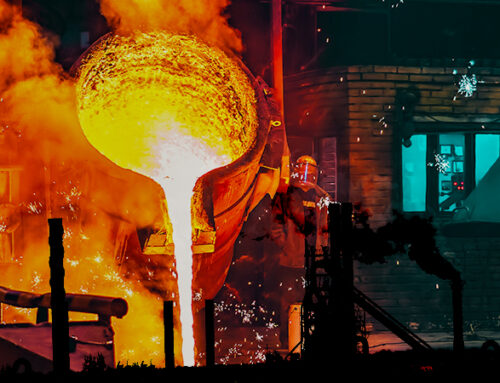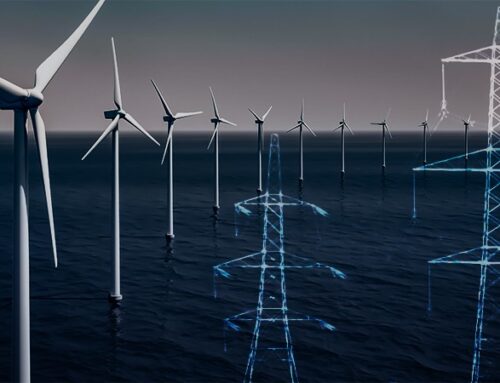Today Citizens Advice has published a report, Home Truths, into consumer experiences with home heating approaches including low carbon technologies and new insulation.
The report draws on the calls made over the past three years to its Consumer Service from people who needed help with installing low carbon technologies (solar PV or solar thermal panels, heat pumps, biomass boilers and battery storage) or making energy efficiency improvements to their homes. The report highlights the problems faced by consumers and the fact that there are minimal consumer protections in this area.
“Extra statutory consumer protections exist for people when they take out a supply contract with an energy provider. But, no extra protections currently exist for consumers when they want to install insulation or new home technologies. This is despite the potential financial outlay and consumer detriment being much greater,”
– Citizens Advice
Citizens Advice is calling on the Government to introduce a net zero homes guarantee which would include simple, enforceable protections to give people confidence in new home heating and energy efficiency approaches.
Consumers exposed to scams, shoddy work and property damage

In order to meet the Government’s net zero targets, almost every home will need to install low carbon heating technologies, and, according to the Climate Change Committee, 15 million homes need to make improvements to their insulation levels. These ambitions will be hard to meet if consumers encounter problems with installing insulation and new home heating technologies, or if they lose confidence due to the problems experienced by others.
The vast majority of contacts with the Citizens Advice helpline – over 90% of all cases – were in relation to solar PV or insulation, with the levels and distribution of complaints being fairly constant over time (other than a dip in 2020 corresponding to the first covid lockdown). Most contacts were during the operation and pre-contract stages, making up around two-thirds of all cases. Most of the remaining contacts related to the contract stage.
The majority of cases in the pre-contract phase relate to cold calling and suspected mis-selling, with consumers feeling pressured into signing up on the doorstep. Consumers already using some low carbon technologies are specifically targeted with scams, for example, people with solar PV are approached by installers trying to sell additional technologies, including plug in-devices and inverters on the basis they will enable the solar panels generate more electricity, despite there often being little basis for these claims. People also report being contacted by companies alleging that the original installer had gone bust, or had been guilty of mis-selling the panels, before trying to convince them to sign news contract with them.
Similar issues are seen in relation to insulation, with existing consumers being targeted. There was a spike in insulation replacement scams after the Grenfell tragedy with cold-callers trying to scare people into removing insulation, at “extortionate rates”.
“Many consumers struggle to find high-quality, accessible, and independent advice about home energy technologies,”
– Citizens Advice
Many of the contacts relating to signed contracts indicate that consumers are entering into agreements that are unsuitable to their situation. Many solar PV consumers signed contracts after being promised savings on their energy bills, which turned out to be inaccurate. Heat pump consumers contacting Citizens Advice felt misled by installers after being promised government funding or savings on energy bills which didn’t materialise.
Some consumers experience problems getting a service they’ve paid for in advance or getting installers to begin contracted work or to complete work they had already begun. It can also be difficult to obtain a refund after work has been cancelled. Vulnerable consumers in particular experience such problems.

Problems in the installation phase generally relate to the standard of work. Consumers report being unable to operate new heat pumps, or pumps being incorrectly sized to adequately heat the home; being concerned about the safety of the wiring of battery storage; and having solar panels whose meter doesn’t show generation levels. Some installers cause damage to consumer’s homes which they then refuse to rectify. These problems can be significant – one consumer cited in the report had solar panels fitted which keep making the electricity system trip and caused the roof to leak.
Issues in the registration phase generally apply to renewable technologies which need to be registered for the consumer to receive payments under the Feed in Tariff or Renewable Heat Incentive schemes. While case numbers are relatively few in number, they can cause major problems for those affected with consumers missing out on payments, leaving them worse off than if they hadn’t installed the product to begin with. Problems arise when installers fail to register schemes or fail to issue the correct certificates.
Consumers often have little knowledge or information about the scheme they should be signed up to, making it more difficult for them to resolve such problems.
So-called “rent-a-roof” schemes for solar PV cause particular problems. In such arrangements, a finance provider pays for the panels on behalf of the consumer in exchange for collecting the FiT payments. Sometimes these agreements are sold on to another finance provider, leaving consumers unclear as to who owns the panels which can be problematic if they try to sell or re-mortgage their property.
In the operation phase, consumers either have discovered they have the wrong type of insulation installed or that it has been installed badly, leading to condensation, damp or severe mould. Consumers with solar thermal panels report faulty systems and bills not decreasing as promised. Consumers with biomass boilers often report not knowing how to operate their boiler, and need advice about what pellets to use. Across all technology types consumers can find it difficult to get repairs, with installers ignoring them, cancelling appointments, taking longer than expected to carry out repairs, and overcharging for making repairs. Problems also arise when the original installer has gone out of business.
A Government-backed home heating agency is needed
According comparison website The Switch only around 900,000 British homes have solar panels, so just under 1,800 complaints per year means a significant percentage of annual installations is problematic. De-carbonising domestic heating is a huge and complex task that will require significant action from consumers. The scale and importance of the task justifies the Government taking a more supportive role than it does for general building work, where recourse tends be through local Trading Standards offices.
So I’m inclined to agree with Citizens Advice on the need for a guarantee scheme, and think that the Government should establish an agency to take a leading role in the de-carbonisation of homes. The agency’s remit should include educating consumers about all areas of home energy use, covering low carbon home heating and energy technologies, Government grants, demand reduction through insulation as well as behavioural change. The agency could maintain a register of certified installers in the same way that Ofgem publishes the names of licensed suppliers, and the FCA maintains a register of authorised financial advisers.
Leaving consumers to navigate this complex area themselves and exposing them to potential scams and mis-selling will mean that many will simply resist making changes unless forced to do so, and vulnerable consumers in particular will pay a disproportionate price.






Hi Kathryn…….interesting post.
Agree, insulation of homes needs continue & be encouraged.
On the other hand thanks to natural gas the UK does have an excellent pipework infrastructure in place.
Just needs to be charged with a low or nil carbon gas like green or blue hydrogen.
No way can future energy demand solely through copper wires be possible ie home heating, EV charging etc.
Please see here for an excellent summary by the BBC’s “The Bottom Line” https://www.bbc.co.uk/sounds/play/m000t6m1
Certainly leaves little doubt on the importance of hydrogen in the decarbonisation race.
Barry Wright Lancashire.
Hydrogen is not all plain sailing. Hydrogen embrittlement is a problem in some elements of the transmission system.
Hi again……point taken, corrosion of steel pipework is a problem when exposed to Hydrogen.
However in the past few years I have seen many repairs/replacement of gas infrastructure up here.
Always lots of yellow pipe’s (plastic) involved, presumably a Hydrogen proof replacement.
Reminds me of lead pipework in the water distribution network, progressively replaced with Alky pipe over time.
As an aside;
The cold snaps this winter on windless days was already problematic for NGESO.
Further compounded by the arrival of the Beast from the East causing a sharp increase in demand.
The additional major energy required was delivered across the gas network, not the grid.
For me this serves to emphasise how important our existing gas infrastructure is.
I don’t feel the problem associated with pipe replacement is insurmountable.
Such a great prize if we can pull it off & gradually introduce de-carbonisation into the system.
Initially a natural gas/hydrogen mix leading eventually to the holy grail, distribution of 100% green hydrogen.
Barry Wright, Lancashire.
I’m sure the pipe replacement will be carried out. SGN’s 30/30 scheme ie all pipes within 30 metres of any domestic property to be plastic by 2030 is such an example of what is required.
Does Barry White imagine there will be a changeover point where each district swaps from natural gas to hydrogen (or perhaps a hydrogen/nitrogen blend)? Is it even possible to run cookers and central heating boilers on hydrogen without significant modification?
I understand that there are appliances such as boilers on the market now that are “hydrogen-ready”. This means that they can operate on hydrogen with little or no modification. They will be less efficient in hydrogen mode, but a good bridge to avoid a cut-over period where people have to be cut off for days or even weeks while all houses in a particular area are upgraded.
In fact I think this is the only way the change would be possible – although people refer back to the town gas to methane switchover, I have heard horror stories of gas flaring in the street and that there were accidents and fatalities, although I haven’t been able to find any actual data on this.
But, I still have major reservations about the use of hydrogen in domestic settings. It’s colourless and odourless and burns with an invisible flame. It’s significantly more explosive than methane and its smaller molecules make it more likely to leak. CCS is almost certainly going to be needed for bulk hydrogen production, the technology for which is not yet economically viable.
Hydrogen might make sense for heavy industrial use, particularly in industrial clusters, and also for heavy transportation, but otherwise I’m not persuaded it will be a major part of the energy mix.
Hi all…..I feel we need to recognise the existing gas network & storage as a valuable asset with plenty of life remaining.
Howard’s posting highlights the SGN 30/30 scheme.
I envisage an option for millions of domestic users to replace their existing gas boilers with a hydrogen unit.
Replacement of the pipework from individual premises to the network would be funded as part of the replacement costs, possibly attracting a government grant.
As stated this would be an option come 2030 sitting alongside alternatives ie heat pumps, electric etc.
A straight replacement gas boiler & service pipework like for like I’m sure would prove popular in millions of homes.
Back to hydrogen gas.
I believe the existing steel pipe network & gas boilers could safely tolerate a 20/80% hydrogen/natural gas mix representing an immediate 20% cut in carbon now, termed in the industry as ripe low hanging fruit ready to harvest as part of decarbonisation. Blending with lower levels of hydrogen is already happening.
Natural gas already carries an odorizer, hydrogen gas would need this plus a visualizer to highlight a hot flame.
Bearing in mind we have some years to go a hydrogen proof network & major gas storage facility is a fantastic start.
Much is yet to be done in the production of green hydrogen from wind & solar renewables.
The carbon credentials do take a knock in the compressing & liquifying of the gas post electrolizing.
Patience please whilst I share my favorite fuel analogy:
Fill up at the local forecourt with petrol or diesel takes 10 minutes.
The energy transfer from pump to vehicle tank through a 1″ diam. hose is phenomenal (8/10 MW’s)
To achieve the same transfer in electrical energy in the same time scale would require a copper cable 12″ diam.
In other words fuel storage is going to be needed in all forms for many years to come.
Barry Wright, Lancashire.